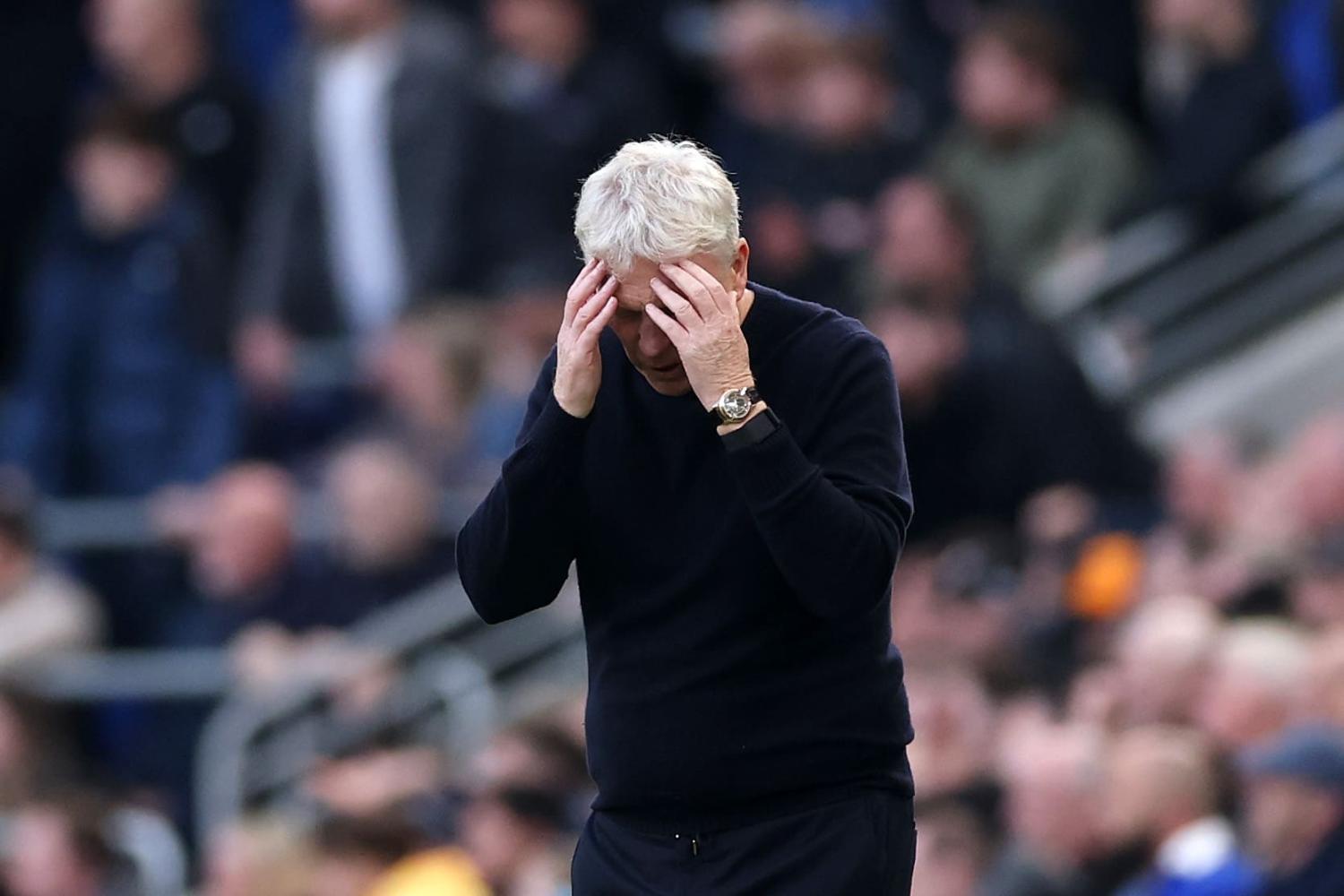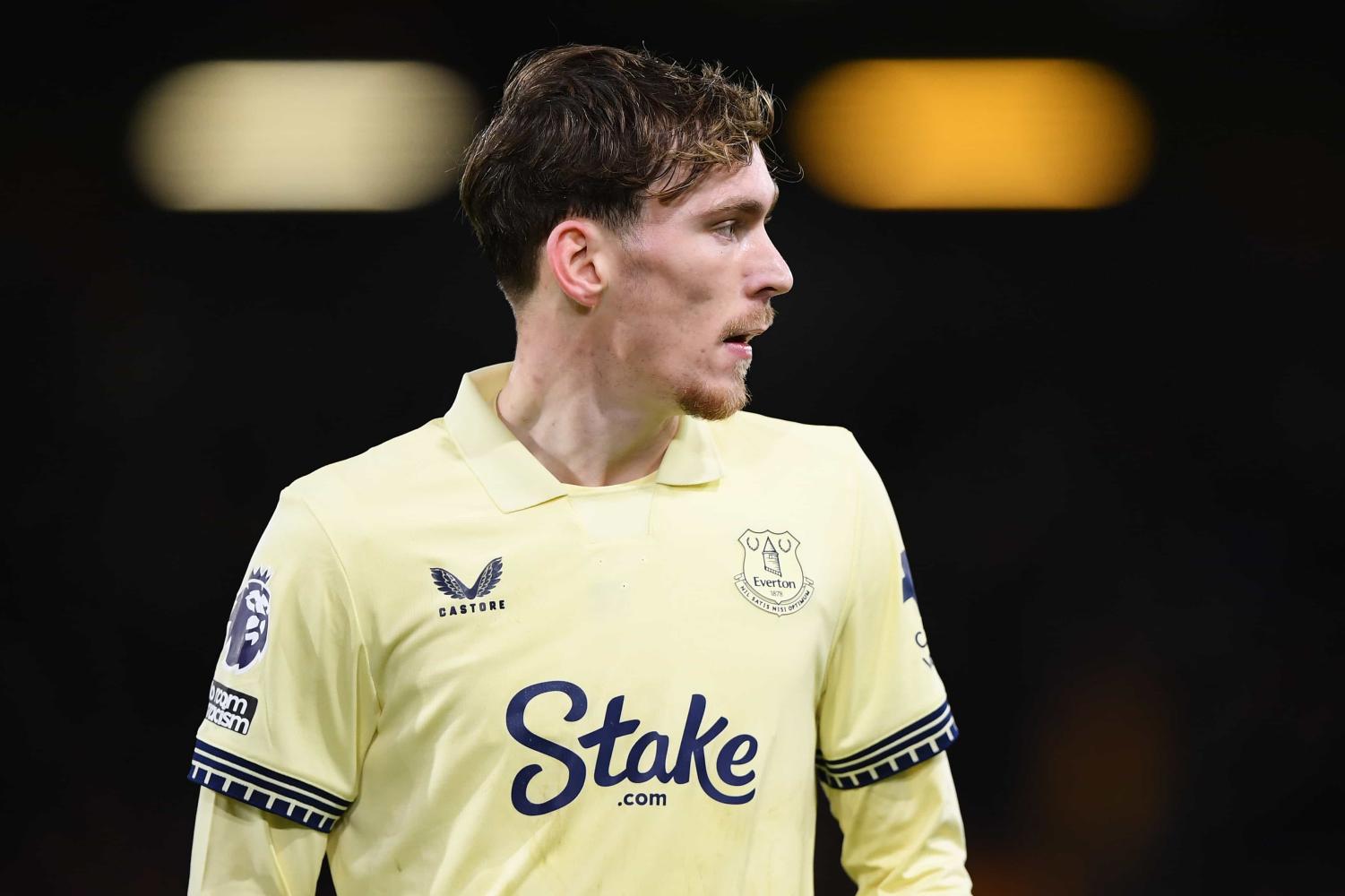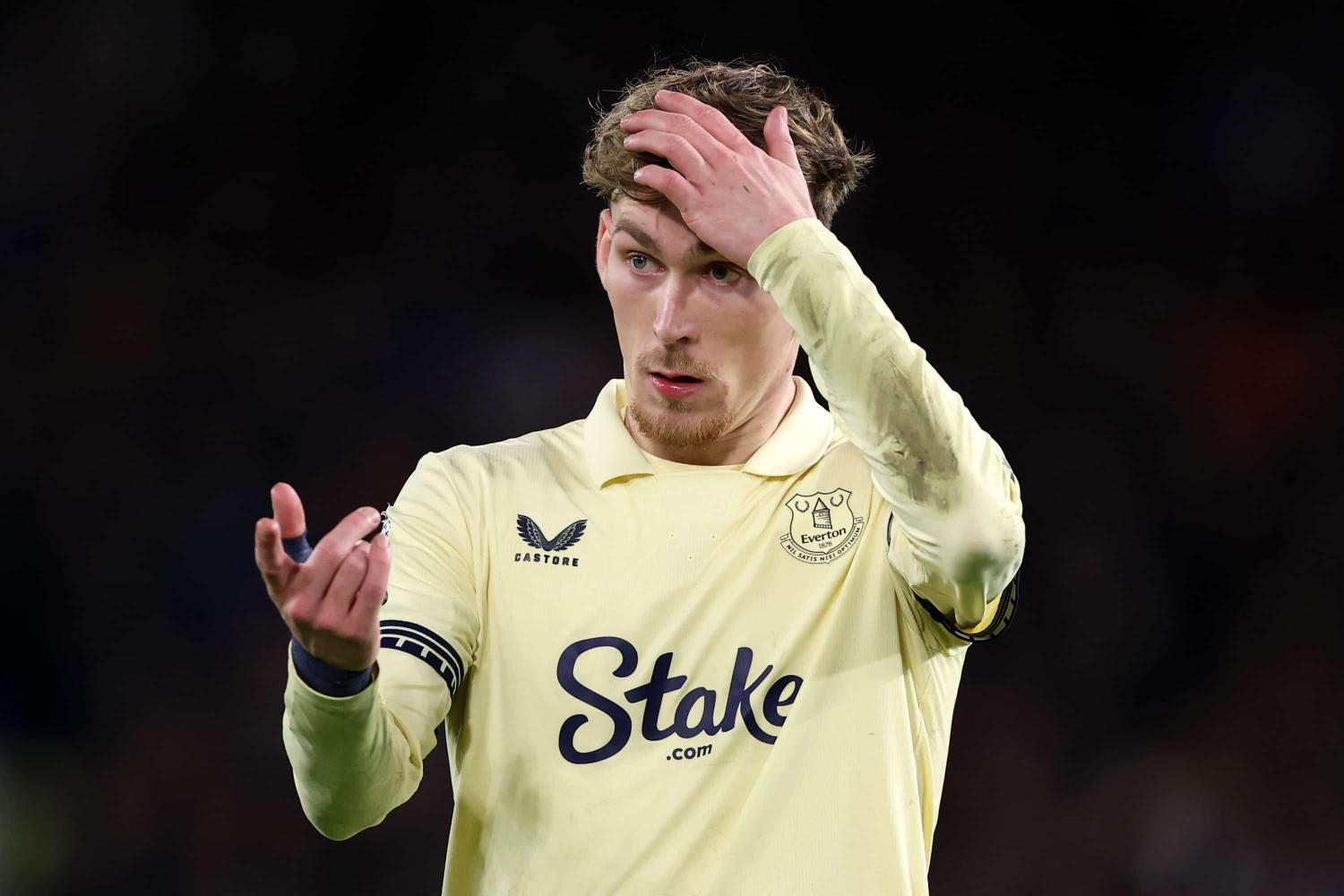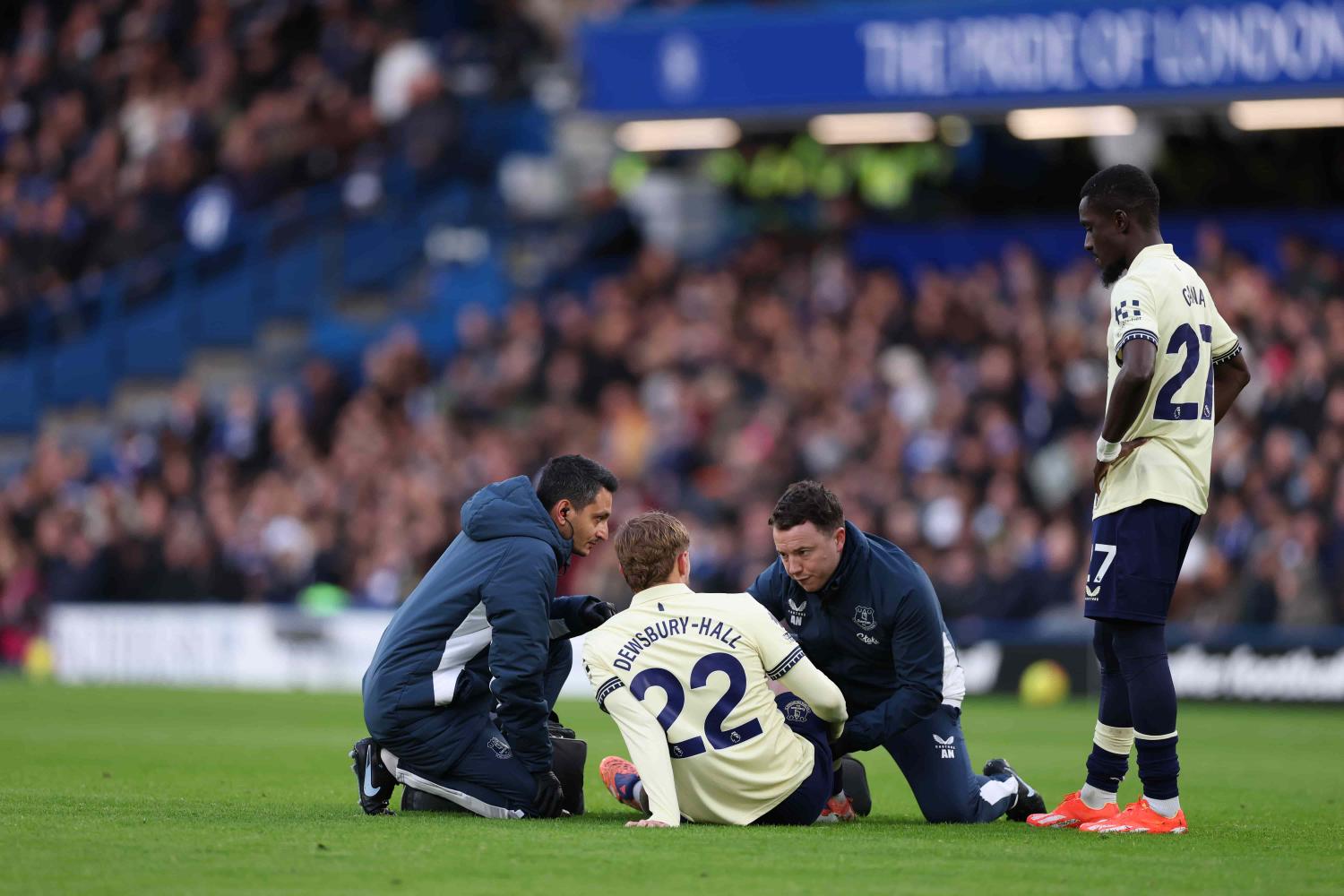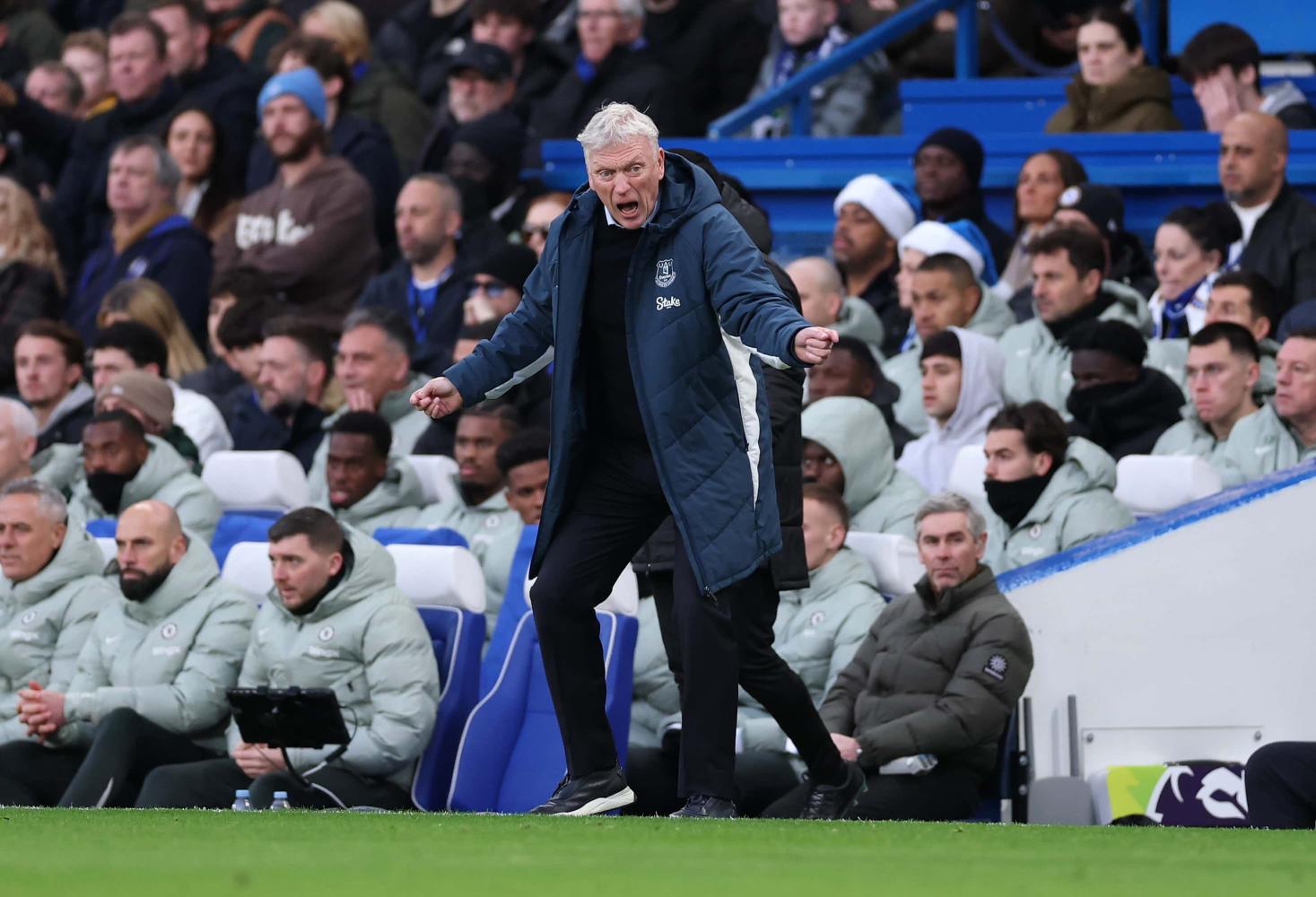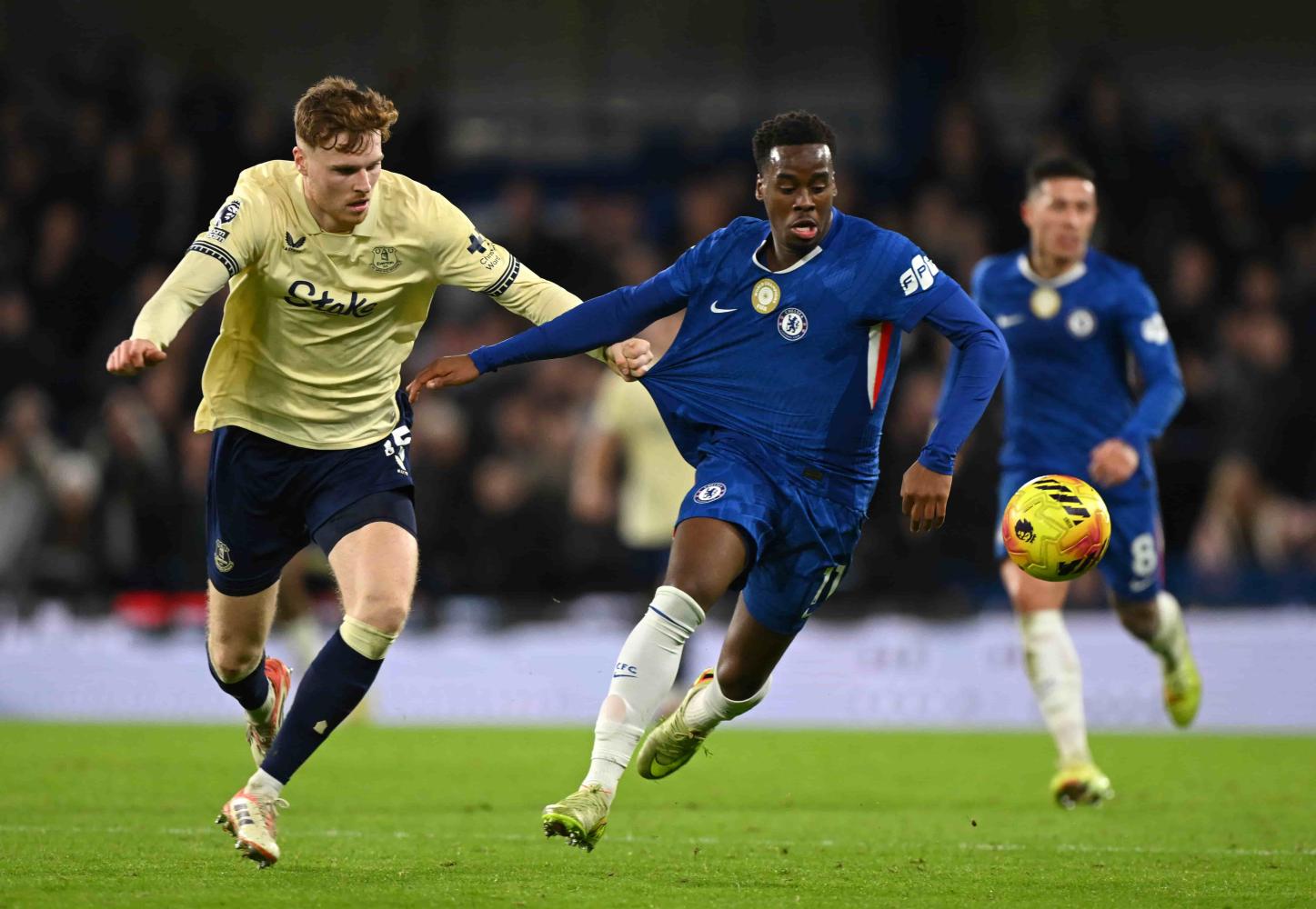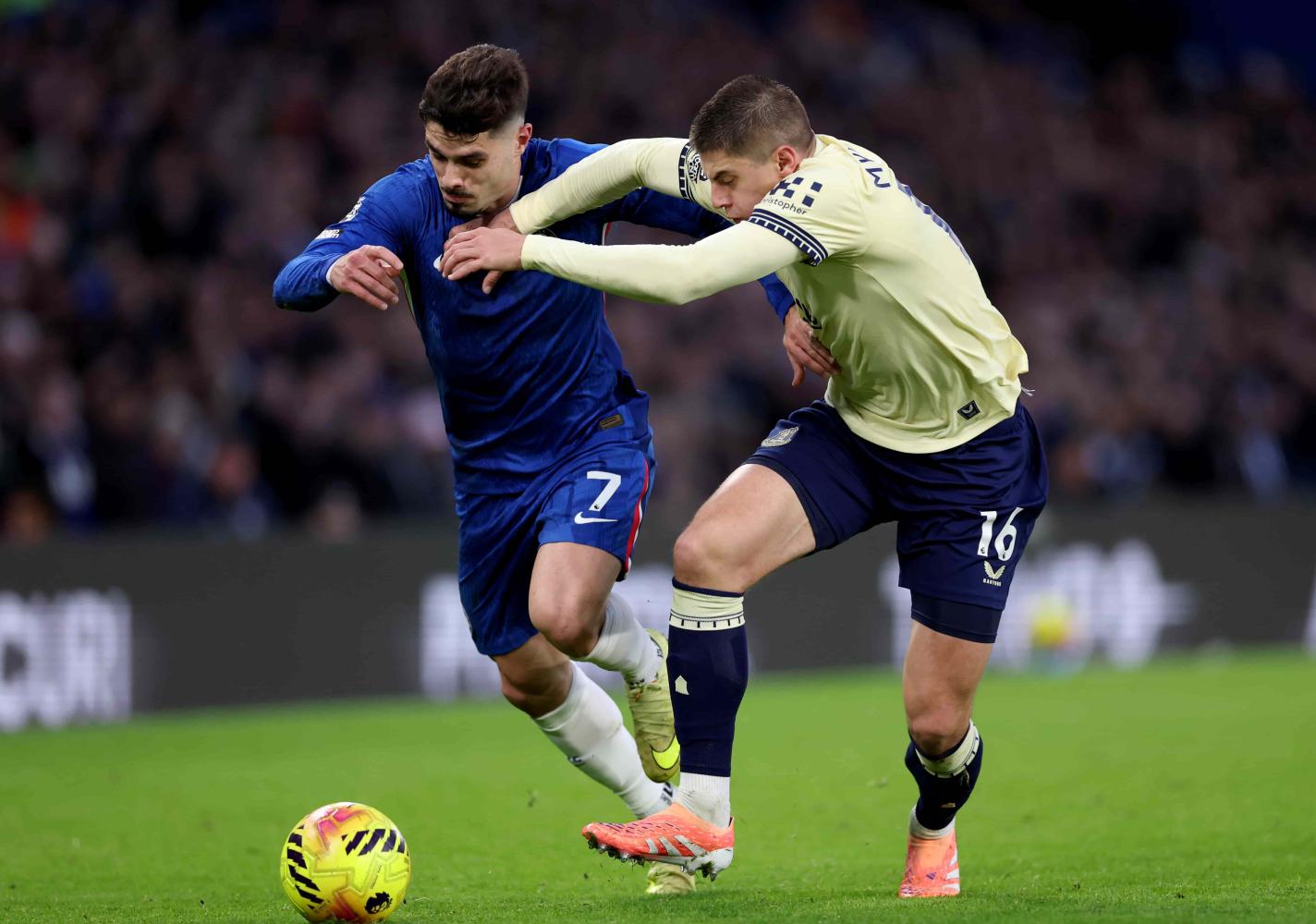Howard Kendall Interview
Timeframe for Success
Bellefield, Tuesday 21 October 1997
|
INTRODUCTION by Joe Banerjee |
|
The following interview took place in Howard Kendall's office at Bellefield on Tuesday 21 October 1997. As with my two previous interviews with Joe Royle, what you read here is what was said with no editing on my part. Comments in parentheses are only added for reasons of clarity or, in the case of Paul Gascoigne, where the added information was of interest. This interview is my intellectual property but I am giving permission for anybody to copy this to their webpage with the proviso that you acknowledge my copyright, spell my name correctly, and that you have the courtesy to actually let me know that you are using it -- not something everyone managed to do for the second Joe Royle interview. All the Best, Joe Banerjee <byi14032@niftyserve.or.jp>
|
|
An interview with Howard Kendall
Joe Banerjee: Thanks for agreeing to the interview. Howard Kendall: Great pleasure. JB: If we could start with the immediate -- it was a great result on Saturday against Liverpool. HK: It was much needed really. I think after the disappointment of the performance and the result against Coventry in the Coca Cola Cup the previous Wednesday, it was very important that we showed our fans that we had the pride and we had the passion. Naturally derby games are different. When you play Liverpool, people call them one-off games, but we raised our game and we were more competitive and we fully deserved the win. JB: The derby game showed that we're obviously a side that can play football, and yet just a few days before we got taken apart by Coventry. HK: I don't think there's any question about whether the players have the ability, because they wouldn't be at Everton Football Club if they were not good players. I think it's all about a player picking up the importance of games and working collectively. I think that I'm still in a finding out process in terms of the players longer term -- players I've inherited here from the previous manager and also players I've brought into the club. We have chopped and changed, maybe a little bit too often, but I've got to try and find the right blend, the right balance, and also I've got to find out very quickly, or as soon as I possibly can, what is my best team. If I don't feel the players here are good enough, then I've got to search for better. We're always looking. We're always looking to bring in players who are better than what we have, but it does speed up the need, or the urgency of getting new players when you're down the bottom of the table and struggling. JB: But it is just the beginning of the season. Only four points separate us from Liverpool. Does the crowd, do the players, does the chairman -- do we all expect too much too soon? HK: I think it is all, or most of it is, down to media pressure. Everton have struggled in the League three out of the past four seasons and been down near of the bottom of the table, with threats of possible relegation, even one year going to the last game as you probably know, and I think that probably there is an expectancy, or there is a demand from supporters -- because if you have 36,000 as an average gate you are going to demand to do something positive, to improve things quickly for everyone to see. I think the media at this stage of the season, especially at big clubs, if you do lose games or you haven't had a good start, then they do put pressure on either the manager or the chairman. But the last three games we've played at Goodison Park the players have received a standing ovation leaving the pitch. So they're not too displeased at certain performances, it's all about consistency and away from home we've not achieved that yet. The last away victory against a Premier League club was last year -- December '96. JB: That must have been the Derby game. HK: That's right, Derby County. JB: I did read after the Liverpool game that Craig Short said something along the lines of 'confidence was low at the Club'. HK: After? JB: I assumed the comment was made between the Coventry and Liverpool games. Motivation is obviously one of the most important factors -- getting motivated for the Liverpool game is easy, as you said it's a one-off, but how do you get them motivated for other games? Coventry this Saturday (25 October '97) shouldn't be a problem after what happened last Wednesday. HK: It could be the perfect timing, we don't know. We'll have to wait and see what happens on Saturday. But motivation is something that players when they put on the blue shirt of Everton Football Club they should have a pride, they are professionals, to go out and at least do their best, and go out and willing to work and willing to show some pride in their performance for the 90 minutes whoever they maybe playing. JB: But they obviously don't. If the 36,000 fans that come and watch Everton play at Goodison could pull on the blue shirt and play for the club they support, I think they'd all want to be a Danny Cadamarteri. He's young, unfettered by pressure and scoring in the derby comes as naturally as scoring a soft goal in training. However, the older professional players should be motivated, but are they really? HK: I think they are motivated. I think that they look around maybe when things are not going so well during the game, I think that's when you need leaders. I think that the first time I was here as the Everton manager, you could see on the training ground the quality of the players that we had here, and yet on match days we were playing with a lack of confidence and I think that when I brought in two players, two very experienced players, Peter Reid and Andy Gray, they really made things happen. They were leaders and the other players looked to them and responded, and I think possibly that is maybe what is needed now. They are very difficult to find. JB: Are there any players, you don't have to name any names, it would be nice if you could... HK: Wish you could. [laughs] JB: ...that you would like to bring here, as you did with Reid and Gray? Are there two players out there that if you could get, you think could do a similar job? HK: I think they are very difficult to find, I think that if they were out there then most clubs, most people would be looking for them. I think that you've got to look at maybe a Batty at Newcastle, and maybe an Ince at Liverpool who we tried to bring here. They are players out there on the field who are leaders, who do organise when they are out on the field and other players respond to their commitment. (Later on I asked him on the training pitch if he would be interested in Paul Gascoigne and his answer was a firm "No." He said he felt that Gascoigne probably only had one good season left in him, even though he was sure he would be going to France with England for the World Cup.) JB: Gary Speed is surely one of our senior players who commands respect on the pitch... HK: Oh yeah, he gained respect from me. I knew Gary as a good player before I came to the club, but I think from Day 1, from the pre-season period, he impressed me greatly with his attitude before I made him captain. JB: Joe Royle said to me last season that they are a very quiet bunch of players, the squad that he had, which is not so different from the one that you've got. Is that true? Do you find the same, that they are quiet? HK: Yes, this is maybe what Joe was talking about -- when we were talking about a Peter Reid or an Andy Gray, maybe we need someone in there who stirs everyone up and we get more from all the players because of the contribution from that sort of player. A quiet team is not good really, because I think players need help. If they all go out and play as if they are all strangers, then they have difficulties. You need to give assistance. You need to tell players when to hold the ball maybe or which positions to move into. It can't come from the sidelines all the time, it can't come from the player's dugout. I mean on Saturday (against Liverpool) we were trying to get information out to the players, but they couldn't hear because the noise was absolutely deafening. JB: Is that one of the reasons why you've kept Dave Watson in the team, because many of the match reports I've read over the Internet suggest that Dave is maybe getting a little past it, but obviously the experience is invaluable? HK: Dave is understanding in terms of his age, he can't go on forever, no player can go on forever, but when you look at his performance last Saturday it was absolutely outstanding. So Dave at the moment has still got a lot to give on the playing field. JB: Going back to the Liverpool game, we did what we did without someone I consider to be Everton's current best player -- Slaven Bilic. He must have been a player you were quite glad to inherit. HK: He's an outstanding player. I think it is also a case of settling in with a partnership. We've played with three players at the back and we've also played with two centrebacks. I've got Craig Short, I've got Dave Watson, and I've got Slaven. I've also got young Michael Ball who is coming through and who can play that position. Richard Dunne who is a young player who played there last year... JB: ...and Jonathan O'Connor says he prefers that position. HK: Jon O'Connor, and Graham Allen who is also here, who has unfortunately been injured recently, and it is very difficult for these players to break through because of the senior players, but I'm sure they will. In the case of Richard Dunne last season for example, he hasn't quite done it yet this season, but I'm sure he will. JB: We seem to have plenty of players in the back including a good number of youth players. Now what about the forwards. Do we have more players like Danny Cadamarteri and Michael Branch in the youth team who you think could make it in the first team? HK: Well it is one of the most difficult positions to actually bring players through your club and to save you absolutely fortunes in the transfer market. Liverpool have been very fortunate with the likes of Fowler and McManaman, but we've brought in John Oster, who is an exciting talent and we've got to try and find more players of that ability. We're delighted at the way Danny has come through. I'm sure that Michael Branch will be looking at it and, when fit, and I'm hoping that will be next week in a reserve outing, I think then he'll be putting pressure on for a place as well. JB: John Oster -- you must have had your eye on him for a long time. You brought him in very quickly... HK: I couldn't have had my eye on him for a long time because he's only 17 now! [laughs] JB: That's true, but I assume you saw him when you were at Sheffield United playing Grimsby. There must have been other people after him as well? HK: There was, yeah, and we had to pay, unfortunately -- possibly more than we would have liked to have paid -- but I think that when you see someone with a little bit of special talent, then we can't afford to lose him and we had to pay what Grimsby wanted. They turned down a million pounds last season. JB: From? HK: Sunderland and Nottingham Forest. Manchester United wanted to take him on their far east tour in the pre-season period. They were very, very keen, but we nipped in. JB: And he was happy to come here? HK: He was delighted to come here. JB: To go back a little bit now. Did you inherit an absolute disaster here from Joe Royle? HK: No, I don't think so. I think I've inherited some very, very good players. I think that everyone was aware because of the struggle that had taken place in the League especially, changes were needed. But any manager in the Premier League would experience the same problems that Joe had. Where do you find quality with the money you have available, and it is very difficult and it takes time. I think "patience" is not a word that supporters like to hear unfortunately, and as I say with the media pressure as it is at the moment it does add to the pressure on a club manager and the chairman. JB: You know I called my first interview with Joe, "Be Patient" because he said if there was a message to the fans it would be "be patient". In my second interview with him I said something that I think goes equally for you and that is, however much pressure there is from the media and whatever the fans are doing, and just that morning someone had daubed "Royle out" by the gates of Bellefield, surely it is the manager's relationship with the most important man, the chairman, that counts? Surely nothing else matters? HK: Well you are hoping that that remains and you build up a rapport with your chairman, and he does support you in difficult times. He has got to believe that the club is being run on the right lines, and sooner rather than later that fortunes will change. I think that when the chairman possibly doesn't feel that something is happening, and the crowd sense that there is something maybe not right, and there is nothing happening within the club, then maybe he does lose confidence with his manager -- I'm not saying that this happened with Joe -- but maybe he does lose confidence and feels it's time for a change. JB: But because you're given such short time-frames... HK: I think they're becoming shorter and it's a nonsense really. It's an absolute nonsense and I think it's becoming shorter because of possibly the finance involved in football now. It's mega, mega big. I think maybe that adds to the responsibility of clubs to be successful, therefore the pressure on the success of the manager is even greater. JB: So when you plan out your strategy for the season or for the future of Everton Football Club, do you have to keep a time frame in mind -- of getting away from the bottom of the League, of pressing for Europe? HK: I think you've got to look at it and to forget about the time scale. I think you've got to just carry on doing what you believe is right and building in a way that you feel is the right way to do things. I think most Evertonians would look at this season as a rebuilding season, and with hopefully a finishing position of respectability, rather than anxiously going into the last part of the season searching for points and desperate for points. Now, at the same time I'm not sitting back here thinking I'm happy with that, because we've got to try and finish as high as we possibly can. We've also got to see that what we're doing eventually will be good enough to be out there challenging with the best again. JB: When you became the manager of the club the first time, as you said we were not such a great club... HK: Well we finished 17th and 19th the two seasons before I came here in 1981; that certainly wasn't good enough for Everton Football Club, but I think that at that particular time the previous managers had been given three years. The third season was the vital season -- whether or not progress had been made, and now it was time to challenge for the championship or be thereabouts. We found with Gordon Lee, with Billy Bingham, that the third season was always a vital season. My third season didn't start too well. Although there had been improvements in the League position in the previous two years to what had happened in the past, the third season started disastrously. So we were going into the third season with the expectancy "right now we're ready", "now we're challenging", and then we started off very poorly. Fortunately enough, we turned things around and when we talked about relationships with the chairman, fortunately enough probably at that particular time I had a relationship where the chairman felt things would turn around and things would get better, and there was no point in changing. JB: Is it the same game of football being played now as it was then? Are you doing the same things now to get us back up the table that you did then? Is the Premiership different from the Football League in those days? HK: It's more difficult now. It is more difficult to find players now. Many clubs are now spreading their nets in Europe of course and trying to bring in players from abroad because there is very much a shortage, not of talent in this country, but of players who would be available. And we found it difficult at the start of the season to bring in players with vast experience, international players, quality players who would maybe reduce the time of changing things around and being successful because you're bringing in proven players. We found that other clubs were also interested because of the shortage and we lost out maybe because of our league position in previous seasons, who were probably not wanting to come into what they thought was a struggling side, and also we weren't involved at club level in Europe. If you go with Paul Ince for an example, we agreed the fee with the Italian club, but it was the player with a choice of maybe Newcastle, Liverpool or Everton and it is understandable that the player didn't end up here for those reasons. Not because of the size of the club or better facilities, or anything like that, but because of the standing of the club in a league position and no European football. JB: Our only two non-British or Irish players are Slaven Bilic and Claus Thomsen. Are we casting our net in Europe? Do we have scouts out there? HK: Yes, we have just recently started, which is behind the times, a scouting network in Europe, which has been badly needed here and we have started to do. With the Bosman ruling you can now possibly go into Europe and you can bring these players to England. I think we are going to find very few occasions where clubs will pay massive transfer fees and massive contracts. They will maybe pay one or the other. I think if they pay massive transfer fees that would have to incorporate the player's wages. We are more likely to be looking for Bosman players, but in any case it can't go on where clubs in England are doing both. JB: My personal feeling is that particular bubble will burst very soon. HK: Without a shadow of a doubt. JB: It appears to me that the only club with real money is Manchester United ... HK: Oh, I think quite a number have proved that they've got real money, not just Manchester United, but I think again it is a case of maybe when an outstanding player becomes available ... JB: Do you have that financial freedom, if an outstanding player comes available, do you have the money made available to you to buy that player? HK: Well that's been proved because the deal was agreed for Ince and Ferdinand with the clubs and I'm sure if that type of quality player becomes available the chairman will do his utmost to finance the deal. JB: I think terms were agreed with Ravanelli between the clubs -- and that was a lot of money talked about there, giving him the same conditions he was getting at Middlesboro... HK: Well we heard differently. We heard that he was quite happy to settle for a smaller contract to retain his Premier League football. When we did get down to negotiations with him, we found that that was not the case. JB: You obviously thought he was a player that we could do with here. HK: I think he is an outstanding player. If you ask Bryan Robson today, he will tell you how he regarded him as being top class and his goalscoring record in one year in the Premiership was excellent. I think that if we'd concluded the deal immediately I think before the season started it would have made a tremendous impact at Everton Football Club. I think the longer it dragged on, figures were banded about in the newspapers about how big his contract was and how much he wanted, then people started to turn the other way, and probably thinking it was a not a good move to bring him here. JB: Most of our transfers are very tortuous when they come off. I thought the John Oster deal was excellent in that no one knew who he was and it was announced after it was settled. Are things different today to when you were last here or from your experience at Sheffield United? HK: It is very difficult these days to keep anything quiet and conduct transfer talks with managers and for it to remain private because one big factor that has emerged in football is the agents. Most players now have agents and they are basically the people you tend to find who put out the stories and try and create more interest in their player. It is very difficult to go in straight away, agree a fee, meet the player, player agrees everything, medical completed and announce the signing. That's how it used to be done, but it is very difficult these days to do that. JB: If we could talk about specific players: Nick Barmby. I should have pushed Joe more about this when I talked to him earlier this year, but he was bought after Daniel Amokachi was sold and yet his role, the link man between midfield and attack, was much the same. Can you give me your opinion on Nick Barmby? HK: No, I can't really. If you had pushed Joe he probably wouldn't have answered you either. I don't really feel I should be talking about individual players. The only thing I could say about Nick Barmby is that he does not regard himself a player who plays just behind the front two in a floating role. He feels he has got more to offer than that and he has been labelled with that, rather than him actually wanting to play there. JB: Obviously on his day he is an outstanding player. HK: He is a very talented player and I think that to get the best of Nick Barmby is something that other managers have found difficult, but he didn't have a problem at Tottenham. He wasn't an out and out striker, but he wasn't a floating player. He had a role to play in another position and maybe we've got to try him there. JB: What about our youngsters. Players like Danny Cadamarteri -- you can't play them every game for the whole season because of their age... HK: Oh, I think if they are good enough and if they achieve a level of consistency and can cope with playing at Goodison Park in front of a full house, and playing in derby games -- if they can cope with that then there's no reason why they can't retain their place. JB: I wasn't thinking so much about the mental side, more the physical aspect in that, for example, Manchester United were careful with the way they brought Ryan Giggs into their team -- slowly. Joe said the same about Michael Branch. You're not worried about overplaying a 17 or 18 year old? HK: If we see signs of fatigue, naturally we would pull him out and rest him (Danny Cadamarteri). But at the moment he is full of life, full of running and I don't want to stop him. If he's my best at the moment, then certainly he will play. JB: The game this coming Saturday against Coventry. Will you play the same team? HK: You don't select your side on a Monday or a Tuesday. What has happened is that the players have made it easier for me to select the team next week. Now, most of the time this season they have made it very difficult for me because of a lack of consistency and things that were lacking that I was seeing on the field -- cases of "well he's not done it, I will try somebody else and see if he will respond to the way I want to do things", and changes have been made. However, I think it is easier for a manager to select his team after the team have performed the way they did last week. JB: One of the players I was really impressed with was Graham Stuart. HK: He started well, he gave away three free-kicks in the first two minutes. [laughs] Well it was something like that. There was nothing nasty about them. It was competitive and maybe they were mistimed, but there was nothing malicious in the challenges, but it did start us off in the right manner and he continued throughout the game. I thought he was excellent. JB: Our injured players, and I'm thinking of Joe Parkinson in particular. Is he going to come back? HK: Yes, I think so. Joe's just recently had major surgery on his knee. JB: Was it a cruciate ligament? HK: It was a little bit more complicated than that. He had a couple of minor operations which weren't successful and then he went into have this major surgery on the knee. We'll have to wait about six months to see how things turn out, but the surgeon is very hopeful that Joe will make a full recovery. I think he is a player that we have missed. JB: We could certainly do with him. What about Tony Grant? I saw him coming into training. HK: Tony is nearly fit. He's had a calf injury, but he's nearly fit. Michael Branch we have talked about earlier is possibly playing in the reserves on Thursday. Gareth Farrelly has got a knee ligament injury and maybe he's about two weeks away. Graham Allen has got a hamstring problem and he's maybe two or three weeks away. So we have quite a few, but we have increased the squad and I think you need a back-up. I think Joe was very thin on the ground last season, quite a number of players left the club who were on the fringe and he had to bring in the youngsters towards the end of the season for a couple of games. JB: It is obviously now very much a squad game. HK: It is very difficult to tell the players that. On the continent they are most used to it. Most certainly. They accept that if they are in the 16 they are quite happy that they may get an opportunity sometime during the game, but the mentality of the English player is that if I'm not playing "you don't like me, you don't fancy me, let me go". Maybe they'll learn through experience. JB: Looking at that list behind you (pinned up on his notice board) we do appear to have a good strong squad, so are we going to get more consistent? Is it going to come together? HK: Well that's what we're hoping for. I think the players have set their standards last Saturday. They are not always going to achieve the standards that some of them achieved against Liverpool, but I don't want them dropping to an unacceptable level as they did at Coventry. JB: What was the training session like yesterday (Monday)? HK: Well naturally more bubbly than it would have been had we lost on Saturday. JB: I understand you are going away somewhere at lunch time. Is that just you or is that the team? HK: Everyone. JB: Off on secret training somewhere? HK: That's it. JB: Is it for a couple of days? HK: No, no. It's secret .[laughs] JB: Maybe it's because we beat Liverpool on Saturday, but you look very calm and in control. HK: Well if I'm not .... It has given everyone a lift, it gives the manager a lift, the chairman a lift, the fans a lift, players a lift, and hopefully we'll be looking forward to the next game. JB: Thanks again and good luck for the rest of the season.
|
|
Interview Copyright © Joe Banerjee 1997 |

